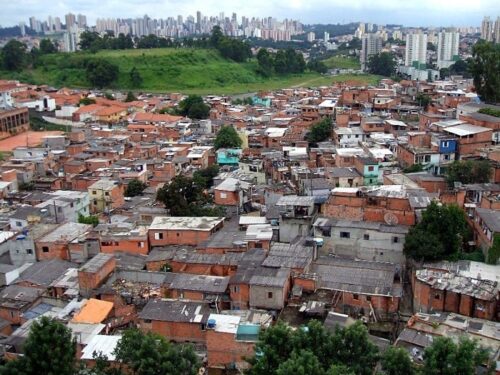
Favela Jaqueline (Vila Sônia), via Wikimedia Commons
The Lundu
This is the age of surrealism,
ordinary oil on ordinary canvas:
all those losing the noisy ghosts of slavery
all those who are scraping off wet paint
and those palm trees in the gardens
all Galerias de Arte in São Paulo.
They say: we are poor.
Some say: we are squatters.
There is the head of a man
and the eyes have no iris.
There is the male I and the
female I superimposed,
your rhythms on guitars, the bass drums,
your castanets.
You dance the Lundu.
You want to stay
when your favela is razed.
What are you going to do
with all this river water?
Your tin-roof shack on stilts?
Lundu – Brazilian traditional dance
The Orangery
After I buried the umbilical cords, the placentas,
the cauls; after I moved in with the lemon trees and
zinnias; after I escaped his fists, I slept in the orangery
on the putty-coloured couch; after I saw the waning
gibbous moon setting in the morning sky; after the
warble of swallows, a Sicilian folk song on a boombox:
“Ciuri, Ciuri”; after I mopped ceramic floor tiles with
water and vinegar, painted cerulean the rush chairs;
after the red brick house was separated by glass doors,
the concrete of a bunker kitchen, steep staircases: after
all that, I would take this verse and write sradicare,
uproot the wild roses, raspberry rhizomes, grasses.
And you’d ask: Why do you write about fetuses
and swallows, “Ciuri, Ciuri”? Flowers, Flowers.
Sicilian folk song, Ciuri, Ciuri








